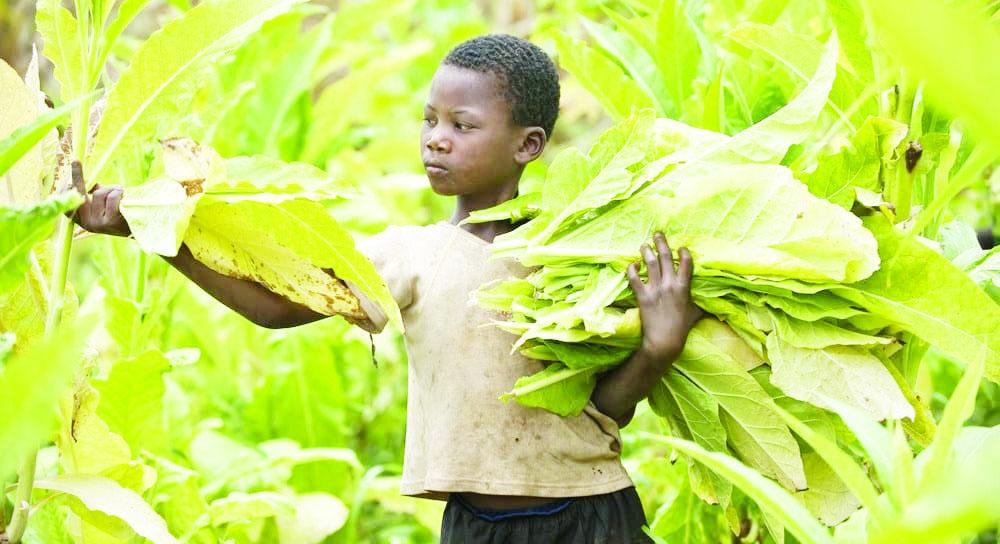Africa-Press – Malawi. Despite the abolition of the tenancy system last year, large numbers of children continue working on tobacco farms, and remain out of school. The revelations of continued child labour in estates are contained in a joint labour report prepared by the Malawi Police Service, Ministry of Labour and some civil society organisations.
Malawi abolished the tenancy system in the country after it was blamed for fuelling child labour, child trafficking and forced labour. The report shows for instance that seven girls aged between 15 and 17 years were recently withdrawn from one estate in Mchinji.
According to the report, the children were trafficked from Lilongwe, a movement which the human rights commission has described as human trafficking. The report further says the children were being tasked to work nine and half hours against the law. The law allows children aged below 14 years to work a maximum of four hours per day to allow them go to school.
For the rescue of the girls, Minister of Labour, Vera Kamtukule, accompanied officials from the Malawi Human Rights Commission when they stormed the farm last week.
Malawi’s laws on labour stipulate that no person between the age of 14 and 18 should work or be employed in any occupation or activity that is harmful to their health, safety, education, morals or development of such a person.
The Malawi Employment Act 200 and the Child Care, Protection and Justice Act 2010 sets a minimum age of employment at 18. The law provides a five[1]year custodial sentence on the offenders.
Malawi Government is a signatory to the UN Convention on the Rights of the Child and the ILO’s Convention No. 182 that bans the worst forms of child labour, which includes child labour in growing tobacco.
A United Nations Human Rights 2022 report warned government against child labour on tobacco farms. The UNHR report said child trafficking and forced labour are pushing thousands of children to work on tobacco farms. The UNHR asked the Malawi to strengthen action to prevent trafficking for purposes of child labour and forced labour.
Under tenancy system, the estate owner granted the tenant access to a parcel of land on the estate and provided them with materials, agricultural inputs and services, in consideration for an undertaking by the tenant to produce and sell agricultural commodities, exclusively, to the estate owner.
For More News And Analysis About Malawi Follow Africa-Press






